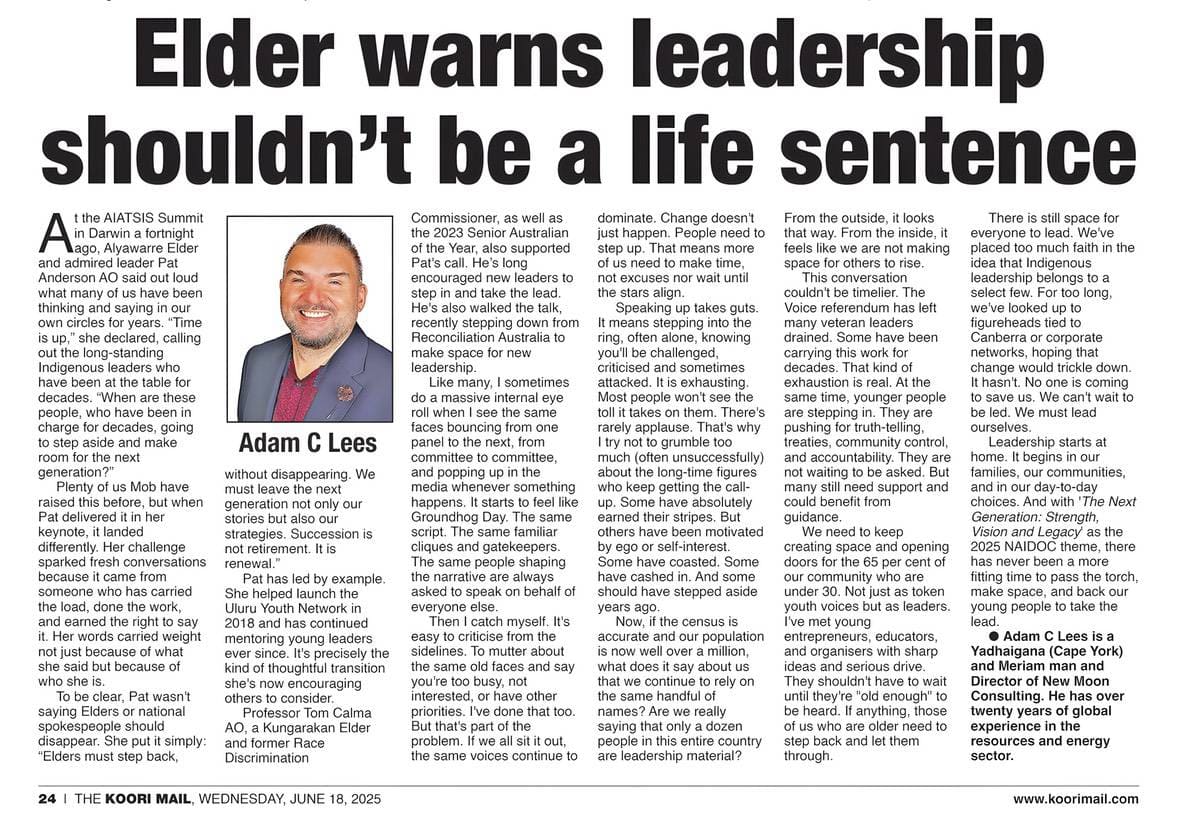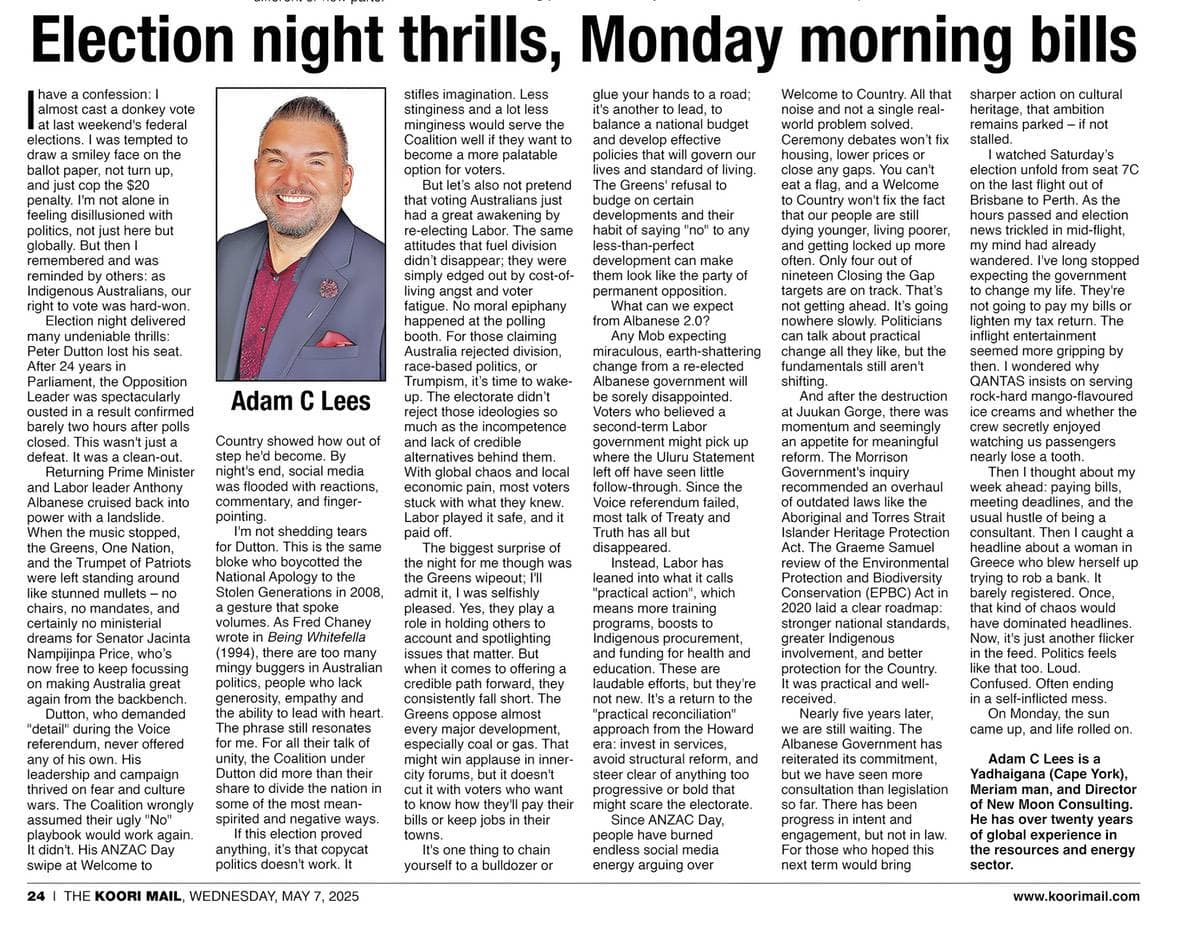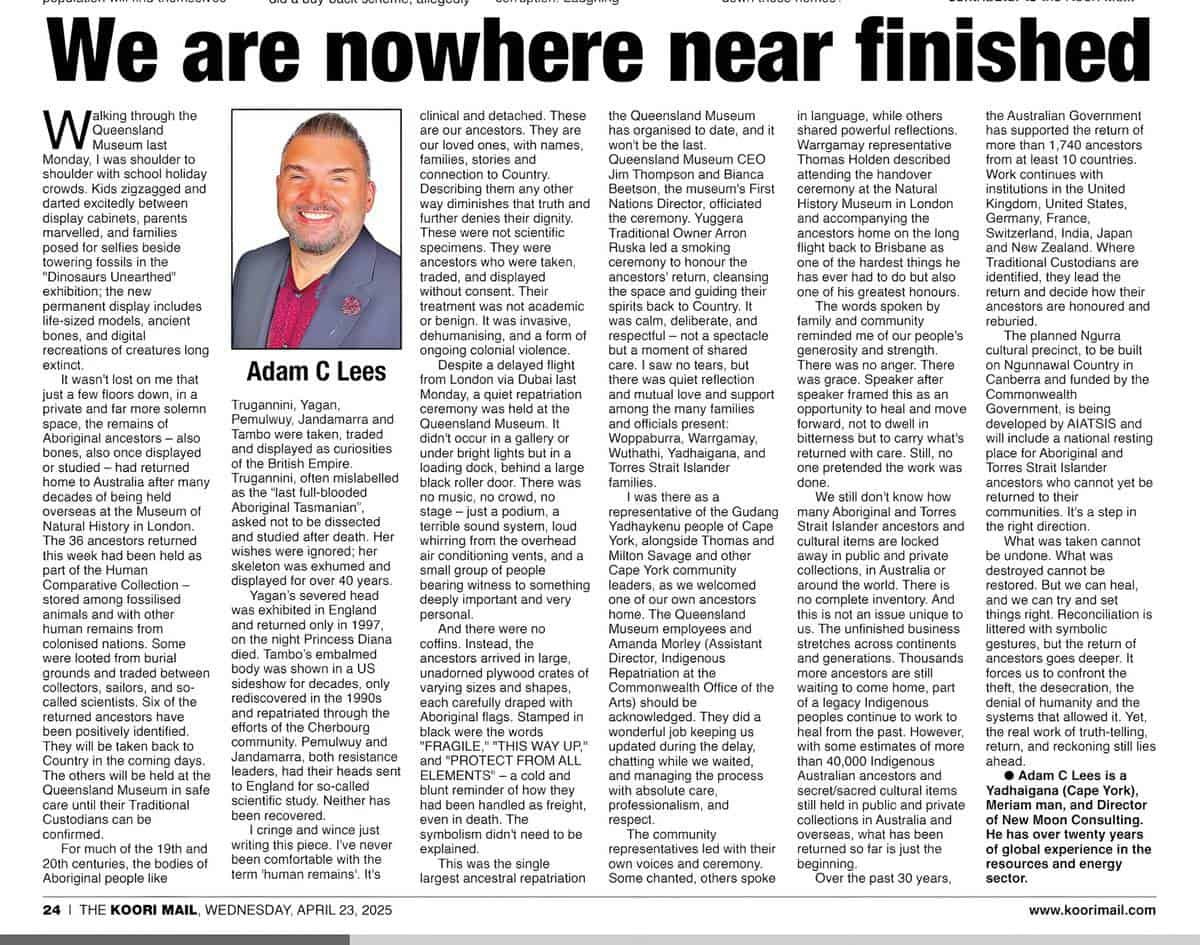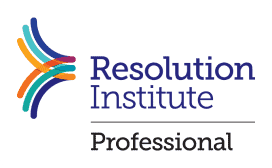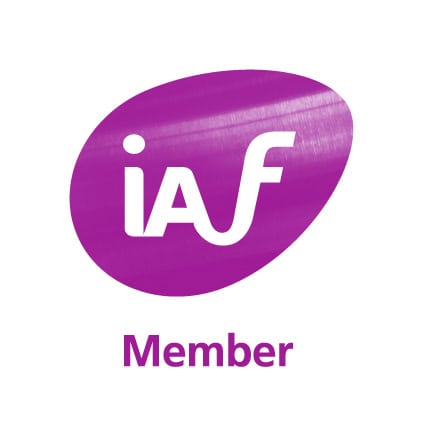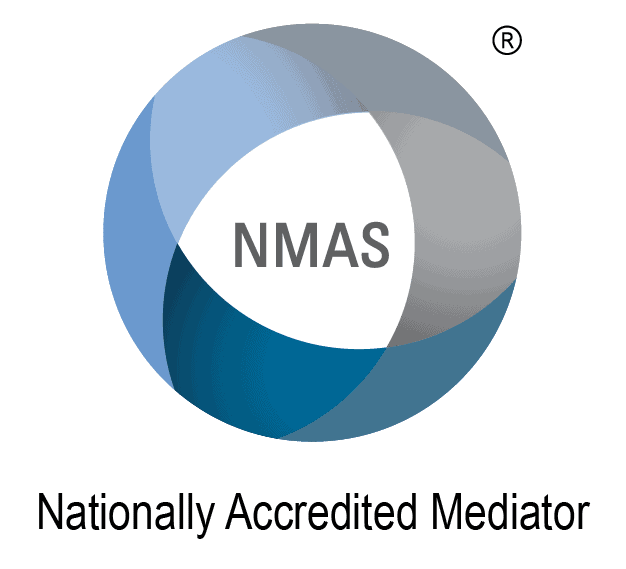At the AIATSIS Summit in Darwin a fortnight ago, Alyawarre elder and admired leader Pat Anderson AO said out loud what many of us have been thinking and saying in our own circles for years. “Time is up,” she declared, calling out the long-standing Indigenous leaders who have been at the table for decades. “When are these people, who have been in charge for decades, going to step aside and make room for the next generation?”
Plenty of us mob have raised this before, but when Pat delivered it in her keynote, it landed differently. Her challenge sparked fresh conversations because it came from someone who has carried the load, done the work, and earned the right to say it. Her words carried weight not just because of what she said but because of who she is.
To be clear, Pat wasn’t saying elders or national spokespeople should disappear. She put it simply: “Elders must step back, without disappearing. We must leave the next generation not only our stories but also our strategies. Succession is not retirement. It is renewal.”
Pat has led by example. She helped launch the Uluru Youth Network in 2018 and has continued mentoring young leaders ever since. It’s precisely the kind of thoughtful transition she’s now encouraging others to consider.
Professor Tom Calma AO, a Kungarakan Elder and former Race Discrimination Commissioner, as well as the 2023 Senior Australian of the Year, also supported Pat’s call. He encouraged new leaders to step in and take the lead and being saying this for some time. He’s also walked the talk, recently stepping down from Reconciliation Australia to make space for new leadership.
Like many, I sometimes do a massive internal eye roll when I see the same faces bouncing from one panel to the next, from committee to committee, and popping up in the media whenever something happens. It starts to feel like Groundhog Day. The same script. The same familiar cliques and gatekeepers. The same people shaping the narrative are always asked to speak on behalf of everyone else.
Then I catch myself. It’s easy to criticise from the sidelines. To mutter about the same old faces and say you’re too busy, not interested, or have other priorities. I’ve done that too. But that’s part of the problem. If we all sit it out, the same voices continue to dominate. Change doesn’t just happen. People need to step up. That means more of us need to make time, not excuses nor wait until the stars align.
Speaking up takes guts. It means stepping into the ring, often alone, knowing you’ll be challenged, criticised and sometimes attacked. It is exhausting. Most people won’t see the toll it takes on them. There’s rarely applause. That’s why I try not to grumble too much (often unsuccessfully) about the long-time figures who keep getting the call-up. Some have absolutely earned their stripes. But others have been motivated by ego or self-interest. Some have coasted. Some have cashed in. And some should have stepped aside years ago.
Now, if the census is accurate and our population is now well over a million, what does it say about us that we continue to rely on the same handful of names? Are we really saying that only a dozen people in this entire country are leadership material? From the outside, it looks that way. From the inside, it feels like we are not making space for others to rise.
This conversation couldn’t be timelier. The Voice referendum has left many veteran leaders drained. Some have been carrying this work for decades. That kind of exhaustion is real. At the same time, younger people are stepping in. They are pushing for truth-telling, treaties, community control, and accountability. They are not waiting to be asked. But many still need support and could benefit from guidance.
We need to keep creating space and opening doors for the 65 per cent of our community who are under 30. Not just as token youth voices but as leaders. I’ve met young entrepreneurs, educators, and organisers with sharp ideas and serious drive. They shouldn’t have to wait until they’re “old enough” to be heard. If anything, those of us who are older need to step back and let them through.
There is still space for everyone to lead. We’ve placed too much faith in the idea that Indigenous leadership belongs to a select few. For too long, we’ve looked up to figureheads tied to Canberra or corporate networks, hoping that change would trickle down. It hasn’t. No one is coming to save us. We can’t wait to be led. We must lead ourselves.
Leadership starts at home. It begins in our families, our communities, and in our day-to-day choices. And with ‘The Next Generation: Strength, Vision and Legacy’ as the 2025 NAIDOC theme, there has never been a more fitting time to pass the torch, make space, and back our young people to take the lead.
Adam C Lees is a Yadhaigana (Cape York), Meriam man, and Director of New Moon Consulting. He has over twenty years of global experience in the resources and energy sector.
